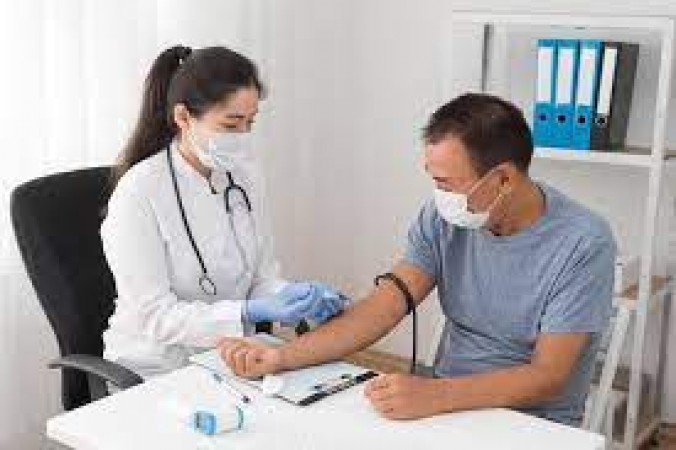
Maintaining good health is a priority for everyone, and one effective way to stay on top of your health is by undergoing a full body checkup. But how many tests are actually required in a full body checkup? In this article, we'll delve into the essential tests that should be included in a comprehensive health checkup to ensure you're well-protected from various diseases and health risks.
Regular health checkups play a crucial role in the early detection and prevention of diseases. They provide a snapshot of your overall health and help identify potential issues before they become more serious. By addressing health concerns at an early stage, you can take proactive steps to maintain your well-being and enjoy a higher quality of life.
A well-rounded full body checkup should encompass a range of tests that assess different aspects of your health. Here are the key tests that you should consider including in your comprehensive health evaluation:
High blood pressure is often referred to as the "silent killer" because it can go unnoticed for years while causing significant damage to your cardiovascular system. Monitoring your blood pressure regularly helps identify hypertension and reduces the risk of heart disease, stroke, and other related complications.
Blood tests provide valuable insights into your overall health. Essential markers to include are:
This test measures cholesterol levels in your blood, including LDL (bad) cholesterol and HDL (good) cholesterol. High LDL cholesterol is associated with an increased risk of heart disease.
A complete blood count assesses your red and white blood cells, hemoglobin levels, and platelets. It can detect anemia, infections, and other blood-related disorders.
Monitoring fasting blood sugar and HbA1c levels helps identify diabetes or prediabetes, allowing for timely management and prevention of complications.
Calculating your BMI provides an indication of whether you're underweight, normal weight, overweight, or obese. Maintaining a healthy BMI reduces the risk of chronic conditions such as diabetes and heart disease.
A comprehensive cardiac assessment includes an electrocardiogram (ECG) to monitor your heart's electrical activity and identify irregularities. This test aids in detecting heart rhythm disorders and other cardiac issues.
Cancer screenings are essential for early detection. Depending on age, gender, and risk factors, tests like mammograms, Pap smears, and prostate-specific antigen (PSA) tests may be recommended.
Liver function tests assess the health of your liver, while kidney function tests evaluate how well your kidneys are functioning. Detecting any abnormalities early can prevent further damage.
Thyroid function tests measure hormone levels produced by the thyroid gland. Imbalances can lead to weight fluctuations, fatigue, and other health issues.
A bone density test helps diagnose osteoporosis and assesses your bone health. Early detection allows for preventive measures to maintain bone density.
Vitamin D plays a vital role in bone health, immunity, and overall well-being. Deficiency can lead to various health problems, including weakened bones.
Regular vision and hearing tests are crucial for identifying potential issues and maintaining sensory function as you age.
Getting a full body checkup on time offers several benefits:
Early Disease Detection: Detecting diseases in their early stages increases the chances of successful treatment and recovery.
Preventive Measures: Knowing your health status empowers you to make positive lifestyle changes that can prevent future health problems.
Peace of Mind: A clean bill of health after a checkup provides peace of mind, while identifying issues gives you the opportunity to address them head-on.
Longevity: Regular health checkups contribute to a longer, healthier life by addressing concerns before they become serious.
Prioritizing your health through regular full body checkups is a wise investment in your well-being. By including a variety of tests that cover different aspects of your health, you can catch potential issues early and take proactive steps to stay healthy. Remember, prevention is always better than cure.
The Impact of Air Pollution on Life Expectancy in India
Paper thin momos are great for both taste and health, learn how to make it
Deficiency of this mineral causes paralysis in the body, eat this thing in youth itself